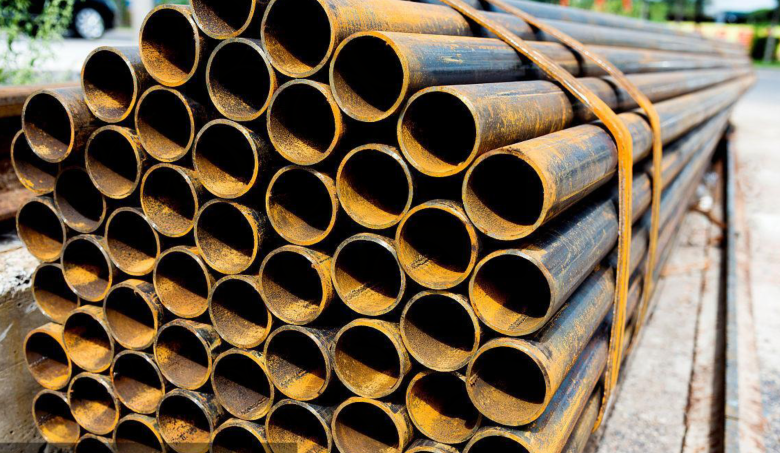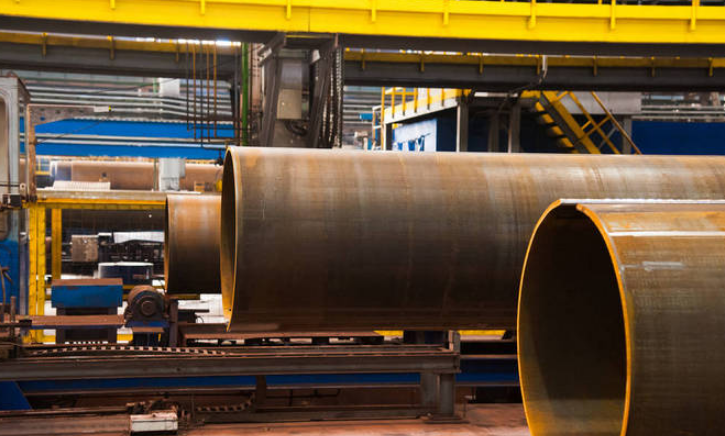
Carbon Steel Pipe Materials, Types and Uses
Date:2023-12-14 keywords: carbon steel pipe & tube materials, types and uses, cs pipe
Materials, types and uses of carbon steel pipes & tubes:
1) Material of carbon steel pipe
Carbon steel pipe is a durable material made of carbon steel, which is a steel alloy of iron and carbon. It usually contains 0.05% to 2.0% carbon, which accounts for a large share of steel materials. The main elements of carbon steel pipes include carbon, manganese, silicon, phosphorus, sulfur and small amounts of chromium, copper, nickel and other elements. Among them, carbon element is the most important element that affects the performance of carbon steel pipes. It determines the hardness, strength, corrosion resistance and other characteristics of carbon steel pipes.2) Types of carbon steel pipes
1. There are many classifications of carbon steel pipes. Carbon steel pipes are mainly divided into seamless carbon steel pipes and welded carbon steel pipes according to the process.
Seamless carbon steel pipe:
Seamless carbon steel pipe is a seamless pipe produced by cold drawing or hot rolling and has a wide range of uses. It is usually used in high temperature and high pressure environments, such as oil, natural gas, chemical industry, electric power, shipbuilding and aviation. The advantages of seamless carbon steel pipes are burr-free, smooth inner diameter, high pressure resistance, and good sealing.

Welded carbon steel pipe:
Welded carbon steel pipe is a pipe produced by arc welding, high frequency welding or gas shielded welding and has a wide range of uses. Welded carbon steel pipes are typically used where liquids or gases are transported under low pressure. The advantages of this kind of pipe are that it is relatively cheap and the production process is easy to control.
2. Carbon steel pipes can be divided into three types: low carbon steel pipes, medium carbon steel pipes and high carbon steel pipes according to different carbon contents.
Low-carbon steel (mild steel pipe):
Carbon content typically ranges from 0.04% to 0.30%. Low carbon steel has good plasticity and toughness, can be hot and cold worked, and is easy to weld. Commonly used low carbon steels include Q195, Q215, Q235, etc. Due to its low carbon content, low carbon steel pipe has good plasticity and weldability, and is mainly used to manufacture some low-demand parts.
Medium-carbon steel:
Carbon content usually ranges from 0.30% to 0.60%. Medium carbon steel has higher strength and hardness, but lower plasticity and toughness. Commonly used medium carbon steels include 45# steel, 40Cr, etc. Medium carbon steel pipes have higher strength and hardness and can be used to manufacture more important mechanical parts.
High-carbon steel:
Carbon content usually ranges from 0.60% to 2.00%. High carbon steel has high strength and hardness, but low plasticity and toughness, and poor weldability. Commonly used high carbon steels include 65Mn, T8, T10, etc. High carbon steel pipes have higher strength but poorer toughness and are suitable for manufacturing wear-resistant and cutting-resistant tools such as knives.
In addition, carbon steel pipes can be divided into round pipes, square pipes, rectangular pipes, oval pipes, etc. according to their shapes; they can be divided into standard pipes and thick-walled pipes according to their thickness. In addition, carbon steel pipes can also be classified according to different standards, such as international standards, American standards, Japanese standards, European standards, etc. Various classification methods are suitable for different industries and purposes.
3) Carbon steel pipe uses
Carbon steel pipes are widely used in industrial production due to their good processability and low price. The main uses of carbon steel pipes include:
1. Oil, natural gas and other energy transportation fields
Carbon steel pipes have a wide range of applications in the energy industry. The energy industry requires vast quantities of pipelines to transport liquids, gases and other resources. As a high-quality transportation pipeline material, carbon steel pipes are widely used in oil, natural gas, hydropower and other fields. These pipelines need to withstand severe environments such as high pressure and high temperature, so carbon steel pipes are required to have high strength, high corrosion resistance and other characteristics. Its high strength and corrosion resistance ensure efficient energy transfer and extend the service life of the pipeline.
2. Construction engineering field
Carbon steel pipes play an important role in the field of construction engineering, such as pipelines, steel structures, etc. Because carbon steel pipes have excellent strength and weather resistance, they are often used in structural supports and protective equipment for buildings. Whether it is a high-rise building, a large bridge or a tunnel, carbon steel pipes provide long-lasting support and ensure the structural safety of the building. Carbon steel pipes are widely used in the construction field mainly because they are cheap and easy to process.
3. Automobile manufacturing field
Carbon steel pipes play an important role in the automotive manufacturing industry. The automotive industry has extremely high requirements for strength and safety, as well as lightweight design. Carbon steel pipes are widely used due to their excellent strength-to-weight ratio. They can be used to manufacture body structures, exhaust pipes, and chassis support components to improve the overall performance of the car and reduce fuel consumption.
4. Applications in engineering machinery, aerospace, chemical industry and other fields
Carbon steel pipes are also widely used in engineering machinery, aerospace, chemical industry and other fields. Construction machinery needs to withstand huge loads and impacts, and carbon steel pipes can meet these requirements and provide long-lasting service life. In the aerospace industry, carbon steel tubes are used to make spacecraft structures and gas turbine turbine blades to improve aircraft performance and safety. In the chemical industry, the corrosion resistance of carbon steel pipelines is very important and can be used to transport corrosive media and manufacture chemical equipment. The main requirements for carbon steel pipes in these fields are structural stability and material strength.
5. Thermal pipeline field
Carbon steel pipes are also widely used in the field of heating pipes. For example, carbon steel pipes are widely used in urban heating pipes.

4) Advantages of carbon steel pipe:
1. High strength: Carbon steel pipes have high strength and can withstand high pressure and high temperature. This gives them good durability and corrosion resistance when applied to heat exchangers. Due to the good durability of carbon steel pipes, the maintenance costs and downtime of the heat exchanger can be reduced, and the operating efficiency and reliability of the heat exchanger can be greatly improved.
2. Low cost: Due to the mature production process of carbon steel pipes, the production cost is relatively low. At the same time, carbon steel pipes have good plasticity and processing properties, can meet the needs of various complex shapes, and are more suitable for mass production, thereby reducing costs.
3. Good corrosion resistance: The surface of carbon steel pipes has been treated with galvanizing or spraying, which can effectively prevent oxidative corrosion and has good corrosion resistance. Especially at low temperatures, it can effectively prevent corrosion and oxidation. This makes carbon steel pipes more suitable for use in harsh environments, such as in the marine and chemical industries.
4. Wide range of applications: The excellent performance of carbon steel pipes makes them widely used in industrial production, not only for heat exchangers, but also in nuclear power plants, oil and gas pipelines, shipbuilding and other fields. At the same time, carbon steel pipes can also be used as supporting and connecting components in buildings and bridge construction.
Conclusion:
Carbon steel pipe is a kind of pipe mainly characterized by carbon content. It has the advantages of low price and easy processing. It is widely used in petroleum, construction, automobile manufacturing, aerospace, chemical industry, machinery and other industries. Seamless carbon steel pipes and welded carbon steel pipes are the main types. Seamless carbon steel pipes are mainly used in high temperature and high pressure environments, and welded carbon steel pipes are usually used in situations where liquids or gases are transported under low pressure. When selecting and applying carbon steel pipes, we should choose a suitable pipe material based on specific work requirements and environmental conditions to achieve the best use effect.
©2017 Permanent Steel Manufacturing Co.,Ltd https://www.permanentsteel.com All Rights Reserved.
Terms of Sale|Privacy Policy


